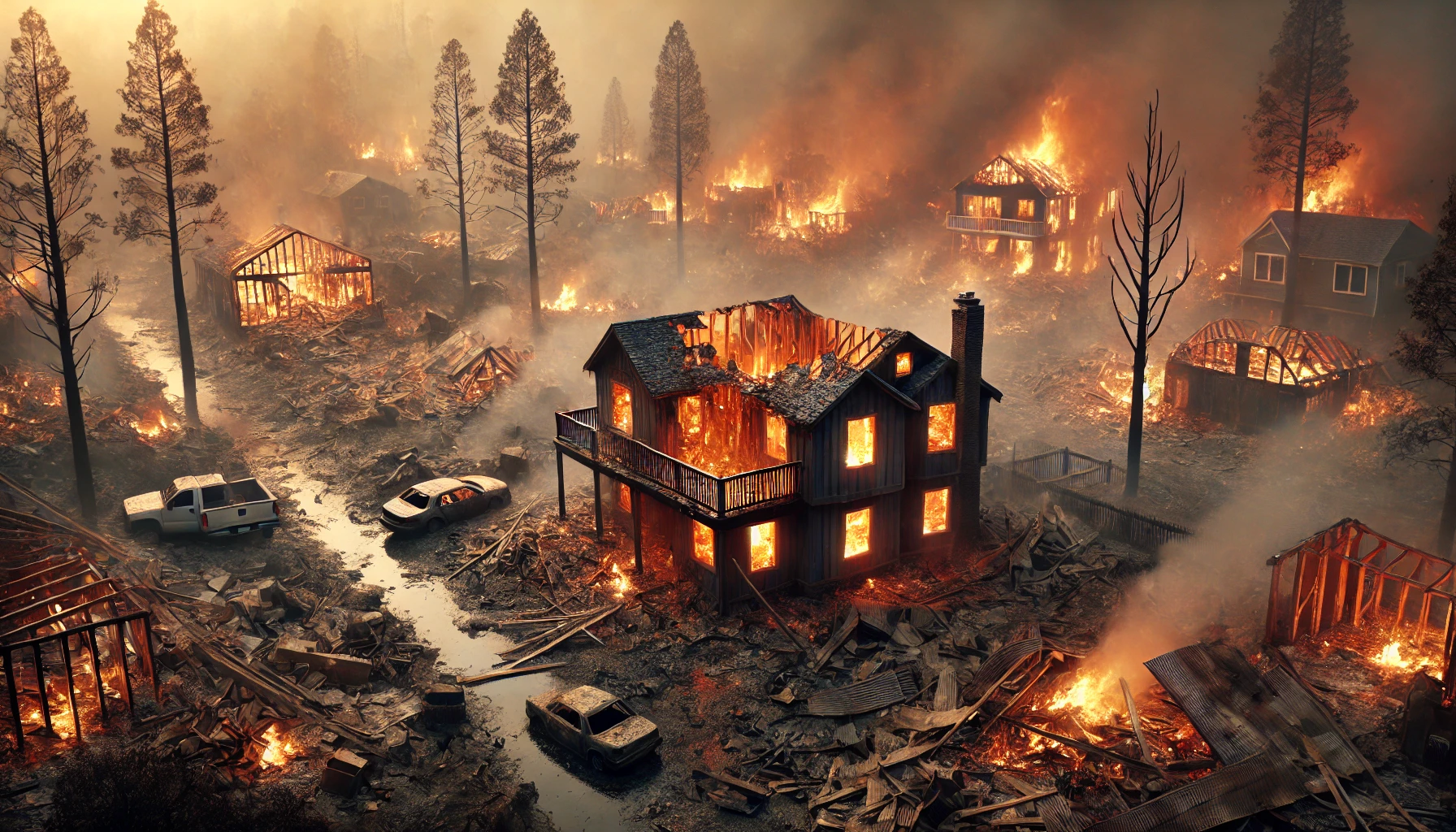F. LaGard Smith
Who could have seen it coming? Who ever could have imagined? Not I, even being a veteran of terrifying fires threatening my former faculty condo on Pepperdine University’s glorious Malibu campus. Been there, done that, watering down my deck with a garden hose as fierce flames flared around me and hot cinders blew. But the scale of loss and destruction in the fires wreaking devastation throughout Greater Los Angeles are without precedent or comparison.
In search of words to describe the catastrophic conflagration destroying thousands of homes and businesses—not to mention lives—virtually everyone is using biblical language and imagery, whether or not they believe in Scripture. “Apocalyptic.” “Armageddon.” “Literally like driving through hell.” (And, of course, countless panicked repetitions of “Oh my God!”) Does anyone stop to think that there is a spiritual reality behind this universal lexicon of disaster language?
In common parlance, “Apocalyptic” has to do with events associated with the end of the world, as described by the aging Apostle John in the figurative imagery he sees in his vision from Jesus. Yet, the word itself derives from the Greek, meaning “to uncover,” or “to reveal.” Hence, John’s “Revelation.” Seen in that light, this week’s “Apocalypse” is Apocalyptic, revealing a graphic depiction of the coming Apocalypse! Don’t focus on the fire, but on the utter destruction.
It’s a fire that consumes! No, not the same literal fire as this week’s inferno—as if it could be extinguished by water! It’s the “fire” awaiting the heavens and the earth, “being kept for the day of judgment and destruction of the ungodly” (2 Peter 3:7). Like the ever-burning fire in Jerusalem’s garbage dump, Gehenna, (from which the word “hell” is derived), nothing survives in the “lake of fire”—the “second death.” (The “eternal torment” of the devil and his angels in that “lake” is a different story.) This week’s firestorm is a picture worth a thousand…sermons!
Whether multi-million-dollar celebrity homes, or rental apartments, the fires were no respecter of persons. Nor will God’s judgment be. Each soul will have to answer for “how” they lived, not “where;” and whether they were adequately prepared for the “mandatory evacuation” of death.
No one can claim to be surprised by hell. Even those who use “hell” flippantly are unwittingly acknowledging its reality! Ever considered that—as with a fairly universal notion of “heaven”—virtually everyone (even beyond the Christian faith) has some idea about a “hell” of divine judgment? Who, then, can say we haven’t been warned! While there’s no such thing as “hell on earth,” there is certainly a hell to come for those who ignore the warnings. Yet, ironically, as with this week’s fires, That Day will come without warning—at a time we least expect it.
Even before the ashes have cooled, the blame game has begun. Why was the brush in the hills not cleared? And why was there no water in the hydrants? Imagine the structures that could have been saved by proper clearance and water. To extend the metaphor, imagine the souls that could be saved by repentance and baptism! Where man has failed, God has set in place a fire prevention plan, and dispatched his own Son as First Responder to rescue us from destruction.
Much has been said about good neighbors during this horrific disaster. What could be more neighborly than telling others about a God of love who, just as surely, is “a consuming fire!”

